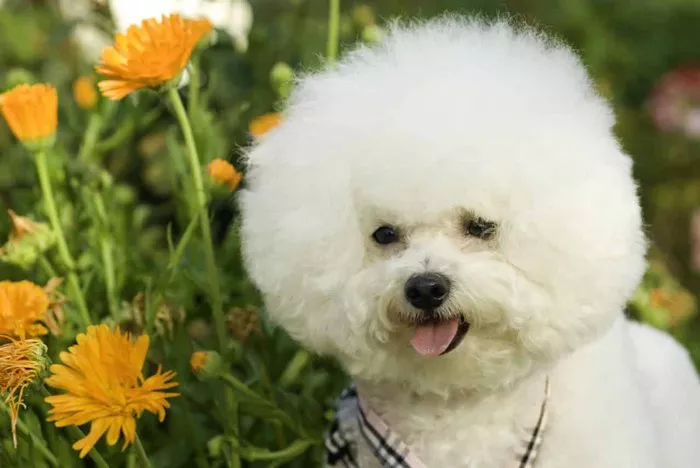Bichon Frise dogs are beloved for their affectionate nature and playful demeanor, making them cherished companions for many households. However, one common concern among Bichon Frise owners is how long these dogs can safely be left alone. In this article, we will explore various factors that influence the amount of time a Bichon Frise can be left alone, providing insights into their temperament, age, training, environment, and the importance of exercise and stimulation.
Temperament of Bichon Frise Dogs
Bichon Frises are known for their friendly and sociable temperament. They thrive on human companionship and often develop strong bonds with their owners. Due to their affectionate nature, Bichon Frises may not tolerate being left alone for extended periods as well as some other breeds. Their tendency to experience separation anxiety can result in distress when left alone, leading to undesirable behaviors such as excessive barking, destructive chewing, or house soiling.
Age Considerations
The age of a Bichon Frise plays a significant role in determining how long they can be left alone. Puppies, for example, require more frequent attention, socialization, and bathroom breaks compared to adult or senior dogs. Young puppies may only be able to tolerate being left alone for short periods, such as one to two hours, before needing bathroom breaks and human interaction. As Bichon Frises mature into adults, they may become more accustomed to spending time alone but still require regular breaks for exercise, bathroom breaks, and mental stimulation. Senior Bichons may have specific health needs that require more frequent attention, such as medication administration or mobility assistance, affecting the duration they can be left alone.
Training for Alone Time
Proper training is essential for teaching Bichon Frise dogs to be comfortable with being left alone. Positive reinforcement techniques can help build confidence and independence, gradually increasing the duration of alone time. Start by leaving the Bichon alone for short periods and gradually extend the duration as they become more accustomed to being alone. Providing engaging toys, interactive puzzles, and comfortable resting areas can help keep them occupied and content during solo time. Consistency, patience, and praise are key components of successful training for alone time.
Creating a Comfortable Environment
The environment in which a Bichon Frise is left alone can significantly impact their well-being and ability to tolerate being alone. Ensure the environment is safe, secure, and free from hazards that could pose a risk to the dog. Provide access to fresh water, comfortable bedding, and appropriate toys to keep them mentally stimulated. Consider using baby gates or crates to limit access to certain areas of the home and prevent destructive behavior. Additionally, create a designated bathroom area for the dog to relieve themselves if left alone for an extended period.
Exercise and Stimulation Needs
Bichon Frise dogs have moderate exercise requirements and thrive on mental stimulation. Regular exercise not only helps maintain physical health but also promotes mental well-being and reduces the likelihood of behavioral issues associated with boredom or excess energy. Before leaving a Bichon alone, ensure they have received adequate exercise and mental stimulation to help them relax and rest during solo time. Interactive toys, puzzle feeders, and obedience training sessions can provide mental stimulation and keep the dog engaged while alone.
Maximum Time Alone
While there is no one-size-fits-all answer to how long a Bichon Frise can be left alone, a general guideline is to limit alone time to no more than four to six hours for adult dogs. Puppies and senior dogs may require more frequent breaks and attention, making shorter periods of alone time more appropriate. It’s essential to consider the individual needs, temperament, and behavior of each Bichon Frise when determining the maximum duration they can be left alone. Factors such as separation anxiety, health conditions, and previous experiences can influence their tolerance for alone time.
Conclusion
Bichon Frise dogs are loving and affectionate companions that thrive on human interaction and companionship. While they can tolerate being left alone for short periods, it’s essential to consider their individual needs, temperament, and age when determining how long they can be left alone. Proper training, a comfortable environment, regular exercise, and mental stimulation are key components of ensuring the well-being and happiness of Bichon Frises during solo time. By understanding and addressing the factors that influence how long Bichons can be left alone, owners can provide a safe and enriching environment for their beloved companions.
FAQs
1. Can a Bichon Frise be left alone for 7 hours?
Bichon Frises are social dogs that thrive on human companionship. While they can be left alone for short periods, leaving them alone for 7 hours may not be ideal, especially for extended periods. Bichons may experience anxiety or boredom when left alone for long durations, which can lead to undesirable behaviors such as excessive barking or destructive chewing.
2. Do Bichons like to be alone?
Bichon Frises are known for their affectionate and sociable nature. They typically enjoy the company of their human family members and may prefer not to be left alone for extended periods. Bichons thrive on attention and may become anxious or distressed when left alone for too long.
3. Can Bichon Frises sleep alone?
While Bichon Frises can sleep alone, they may prefer to sleep near their owners or in close proximity to family members. Providing a comfortable and familiar sleeping area, such as a cozy bed or crate, can help alleviate any anxiety associated with sleeping alone.
4. Is Bichon Frise prone to separation anxiety?
Bichon Frises are known to form strong bonds with their owners and may be prone to separation anxiety if left alone for prolonged periods. Signs of separation anxiety in Bichons may include excessive barking, destructive behavior, house soiling, or pacing. It’s essential to gradually acclimate a Bichon to being alone and provide enrichment activities to prevent or alleviate separation anxiety.


